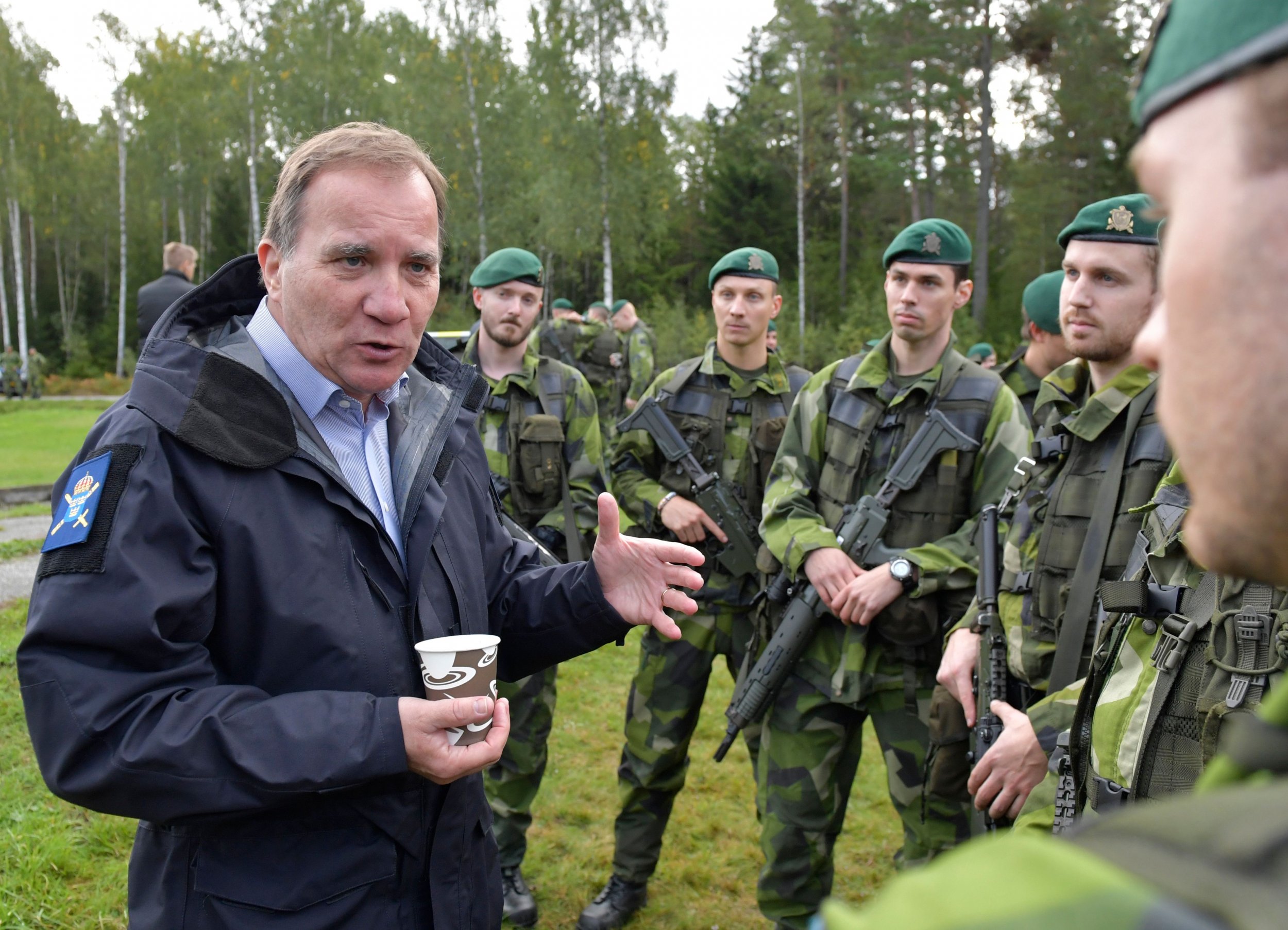
Millions of Swedish homes are about to receive instructions on how to deal with the sudden outbreak of war for the first time in decades, guiding them through the "total defence" of the country in the case of an all-out enemy assault.
Russia's military resurgence continues to worry the once-proudly neutral Scandinavian country, which has backed European sanctions against Kremlin-friendly officials in response to the annexation of Crimea from Ukraine in 2014. Russian-backed forces have since fought to a bloody stalemate with the military in Ukraine's east, where a conflict has cost at least 10,000 lives.
Related: Russia fears the U.S. is preparing for a war with space weapons
The war has sparked fears of war in Sweden's own neighborhood, the Baltic Sea, where ex-Soviet states Estonia, Latvia and Lithuania feel Moscow has set a dangerous precedent for marching into countries it once commanded when they break ranks with the Kremlin.
Sweden, which has refused to join any formal military alliance for years, has since held its biggest defense drill for around a quarter of a century with U.S. and other militaries in September. It also agreed a billion dollar deal for the U.S.-made surface-to-air missile system. But Sweden's Ministry of Defense believes this is not enough and officials have drafted the first civilian war guide for over half a century, the Financial Times reported.
"All of society needs to be prepared for conflict, not just the military," Christina Andersson, leader of the project at the government-run Swedish Civil Contingencies agency. "We haven't been using words such as total defense or high alert for 25-30 years or more. So the knowledge among citizens is very low."
The pamphlet, titled If Crisis or War Comes, will be sent to 4.7 million households after its publication in May. It will give beat-by-beat instructions on how to act in the event that war is declared and, should one be at the site of an attack or emergency, how to secure basic needs such as water, food and heating. The booklet will also apparently include provisions for cyber attacks, terrorism and climate change. The last time the Swedish government resorted to handing out a similar guide to households was in 1961, during the Cold War.
Read More: War with Russia would be suicide for the U.S., says Russian senator
"What was unthinkable five years ago is no longer unthinkable, even if it's still unlikely," Martin Kragh, head of the Russia program at the Swedish Institute of International Affairs told the newspaper. "This has very different policy implications."
Other countries around Sweden have tightened defenses, with the Baltics and Poland increasing defense spending. Lithuania in particular has also started reissuing wartime guides for civilians and reintroduced conscription—a policy Sweden's neighbor Finland also retains. Another one of Sweden's neighbors bordering Russia, Norway, has welcomed a U.S. Marine Corps contingent on its territory.
All besides Sweden share a border with Russia and, with the exception of Finland, are also members of NATO. Both Swedes and Finns have historically been against membership, but the aftermath of the outbreak of war in Ukraine produced the first ever poll in which more Swedes supported joining the U.S. alliance, than were against it, albeit neither won a majority of votes. A Pew survey conducted last year saw those in favor of membership pull further ahead with 47 percent to 39 percent against. The government has made no formal bids for membership, however.
Over the summer another Pew opinion poll showed that Swedes are among the nations most critical of Russian President Vladimir Putin, with 87 percent having "no confidence" he would do the right thing with regards to world affairs, while 78 percent had a negative view of Russia in general. Only the Netherlands had a lower regard for Russia's reputation in Europe and North America.
Uncommon Knowledge
Newsweek is committed to challenging conventional wisdom and finding connections in the search for common ground.
Newsweek is committed to challenging conventional wisdom and finding connections in the search for common ground.
About the writer
I am a Staff Writer for Newsweek's international desk. I report on current events in Russia, the former Soviet Union ... Read more
To read how Newsweek uses AI as a newsroom tool, Click here.








